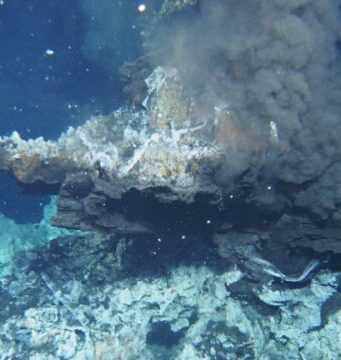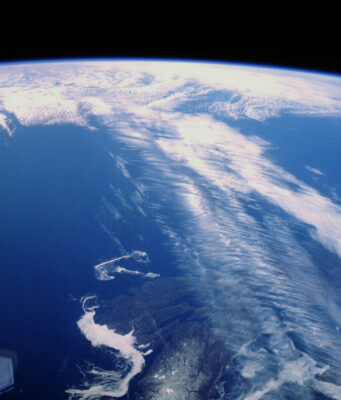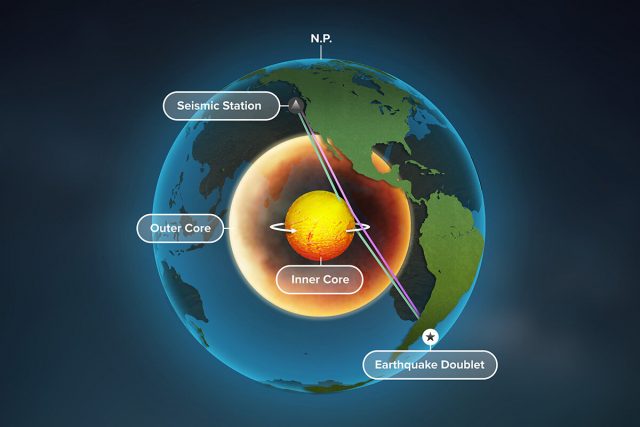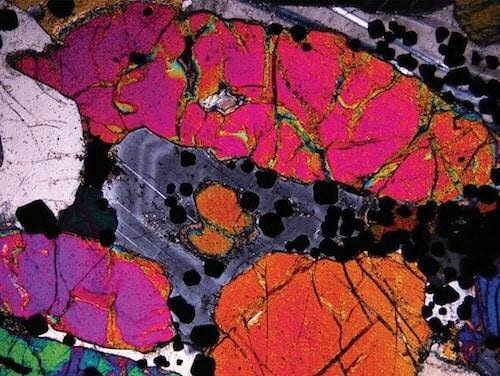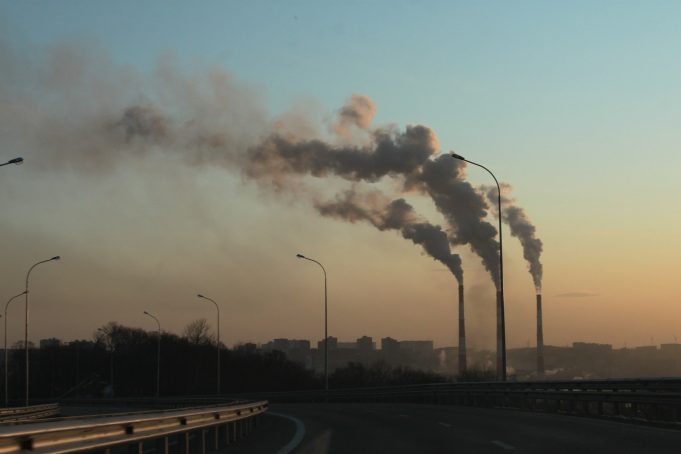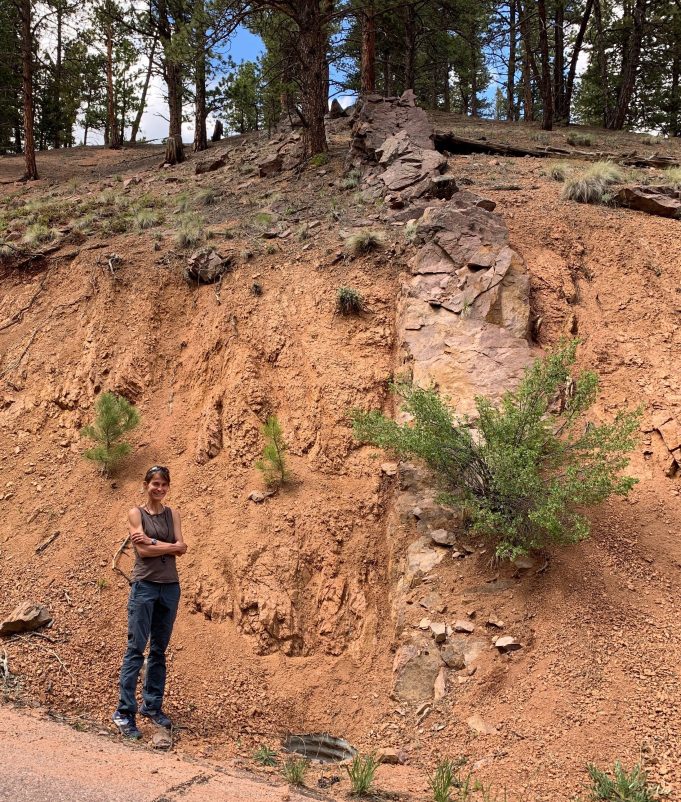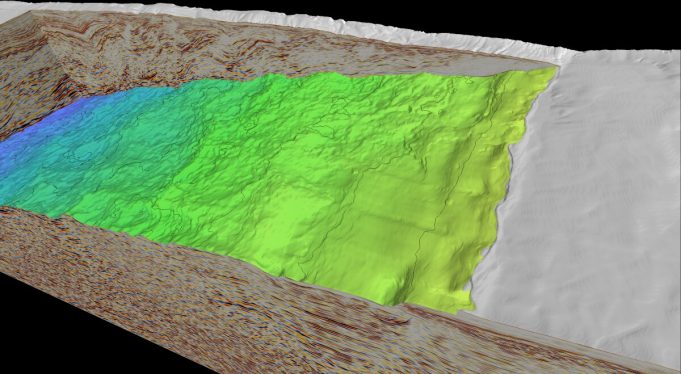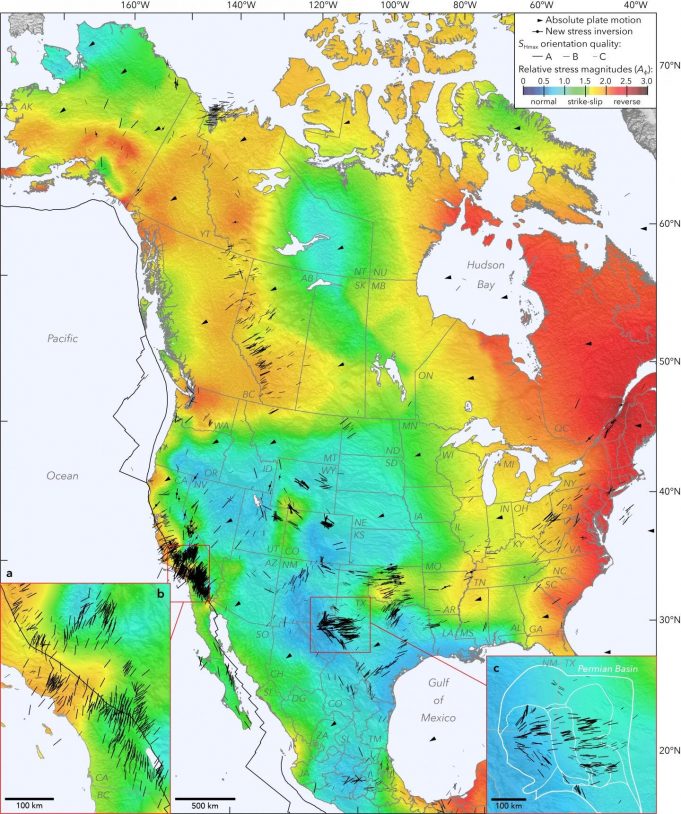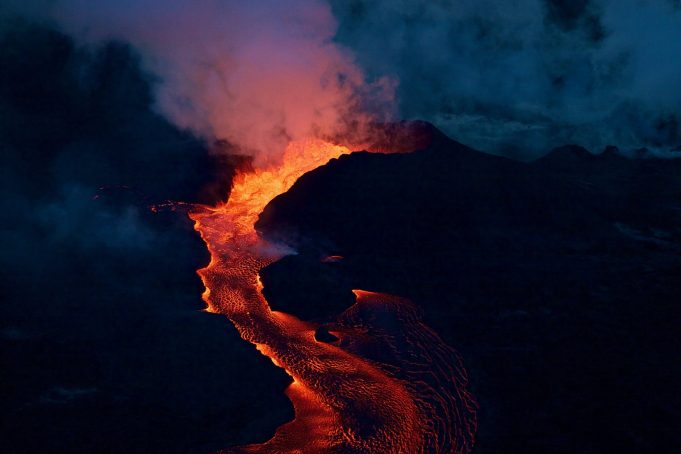By providing the first estimate of how much hydrogen is available to fuel microbial life in the sunless sub-seafloor crust beneath the Mid-Ocean Ridge (MOR), a new Duke University-led study sheds light on one of Earth's least understood biospheres.
It...
In a recently published study, researchers from the University of Hawai'i at Mānoa School of Ocean and Earth Science and Technology revealed the largest and hottest shield volcano on Earth. A team of volcanologists and ocean explorers used several...
Earth crust may have been far more oxygen-rich early in its history than previously thought, setting the stage for the evolution of complex life, according to new research by scientists at the University of Alberta and the University of...
Exhaustive seismic data from repeating earthquakes and new data-processing methods have yielded the best evidence yet that the Earth's inner core is rotating—revealing a better understanding of the hotly debated processes that control the planet's magnetic field.
The new study...
Research carried out by scientists at Keele University, the University of Manchester and University College Dublin has shed new light on how precious metals are concentrated in igneous rocks.
The solidified remains of sub-volcanic magmatic intrusions host the greatest concentrations...
A new class of self-forming membrane to separate carbon dioxide from a mixture of gases has been developed by Newcastle University researchers.
Operating like a coffee filter, it lets harmless gases, such as nitrogen, exit into the atmosphere and then...
A team of geologists led by the University of Colorado Boulder is digging into what may be Earth's most famous case of geologic amnesia.
Researchers have spotted that phenomenon, called the "Great Unconformity," at sites around North America, including in...
A new study led by McGill University has found that tectonic plates beneath the Earth's surface can show varying degrees of roughness and could help explain why certain earthquakes are stronger than others.
Earthquakes happen when the rocks beneath the...
How do mountains form? What forces are needed to carve out a basin? Why does the Earth tremble and quake?
Earth scientists pursue these fundamental questions to gain a better understanding of our planet's deep past and present workings. Their...
An enduring question in geology is when Earth's tectonic plates began pushing and pulling in a process that helped the planet evolve and shaped its continents into the ones that exist today. Some researchers theorize it happened around four...
Excessive and sustained rainfall triggered the 2018 eruption of Kīlauea volcano in Hawaii, according to researchers at the University of Miami (UM) Rosenstiel School of Marine and Atmospheric Science. The researchers suggest that local rainfall patterns may contribute significantly...


